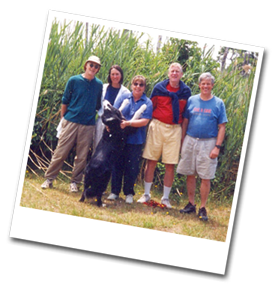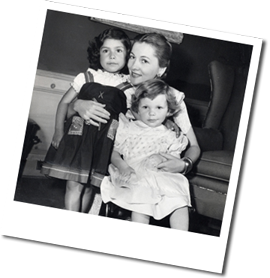![]()



The following editorial ran in The Santa Fe New Mexican July 8, 2007.
MY VIEW: PTSD CAN STRIKE ANYONE FOR MANY REASONS
By Deborah Potter
Natalie Storey's recent front-page article, "Reaching out to women in uniform, " regarding women veterans suffering from post-traumatic stress disorder was a startling reminder of my own experiences with this debilitating disease. I hope the symptoms mentioned in the article led someone to ask: Do I have PTSD? Does my friend?
There are millions of people in the United States who have been diagnosed with PTSD, according to several mental health Web sites. Many more of us could be suffering from it and don't know it. Dozens of recent newspaper articles have shown us that PTSD victims have endangered themselves and others. This disease often destroys careers and families. It isn't just something combat veterans "catch" and bring home; it can affect anyone.
About 16 months after breaking five bones in a horse accident, my life totally changed. My bones had long healed, but my emotions began to alternate between rage and withdrawal. Then I became terrified of the slightest unexpected touch. I only felt safe when I was at home alone. I was good at "acting" normal, but I wasn't able to feel like "myself" again until I inadvertently discovered I had PTSD.
Since my many forms of treatment and long recovery, I've learned more about PTSD from doctors, books and simple Internet surfing.
This disease can result from any kind of physical or emotional trauma: an injury, witnessing violence or death, a divorce, bullying, battering, the loss of a child, the loss of a loved one or the loss of a home.
The symptoms vary, depending on a person's emotional history. They usually begin months after the incident occurs, when one's defenses are lowered because the effects of their trauma "seem" better.
Many people try to mask these symptoms with drugs, daring feats (adrenaline), withdrawal or alcohol.
PTSD symptoms can include nightmares, hyper-vigilance, flashbacks, persistent daily thoughts about traumatic events, persistent memories of those events, emotional numbness, trouble feeling affectionate, startling easily, irritability, aggression, sleeplessness, sudden weight gain or loss and depression. There are many good therapists who are trained to help people overcome this frightening disease.
If you're concerned about yourself or someone you know, please find help. When seeking treatment, ask if the therapist has had specific training in treating PTSD. This is an illness that can be overcome. There is help out there, for everyone's protection.
Deborah Potter is a Santa Fe business owner. Her personal memoir Let Buster Lead, Discovering Love, Post-Traumatic Stress Disorder and Self-Assurance, is due out this fall from Sunstone Press.
